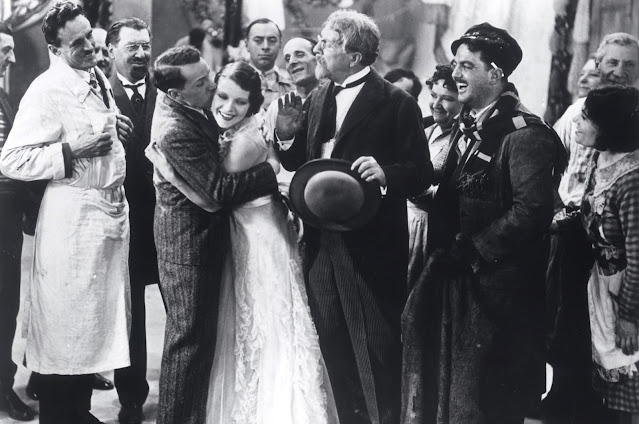Le Million (1931)
Rene Clair's "Le Million"
With his first sound film, "Under the Roofs of Paris," Rene Clair used the newfound sound technologies to include small musical pieces within the film. With his next project, "Le Million," he went even further. "Le Million" has far more music interwoven into this full-dialogue story (as opposed to only a 1/4 dialogue found within "Under the Roofs of Paris."
Clair opted to adapt the renowned play by Georges Berr and Marcel Guillemaud which tells the story of an impoverished man who wins a million-dollar lottery. The only problem is that he left his lottery ticket in the pockets of his jacket, which he left in his girlfriend's apartment, who gave the jacket to man hiding from the police, who sold the jacket to an opera singer who is using it during his performance that night. Throughout the film, our protagonist desperately attempts to get his lottery ticket back through various tricky circumstances.
The film's subject matter, despite being a musical comedy, was an extremely relevant subject matter for 1931. Still in the middle of the Great Depression, money was on everyone's minds. So too is money on everyone's mind in the film. Throughout his desperate searching for his winning lotto ticket, many of the other side characters in the film create conflict with our protagonist, Michel, because they too are desperate for cash. Michael is pressured by creditors who are trying to get Michel to pay his debts. Michel's roommate, Prosper, tries to get to the lotto ticket before Michel does. The fugitive that Michel's girlfriend gifts the jacket to is running from the police because he is the leader of an 'inequality gang' who attempt to restore economic order to the people of Paris. Even Michel's cab driver is desperate for Michel to pay his fare. Everyone in the film is after economic security, which causes the entire conflict surrounding Michel's continued attempt to secure his ticket.
"Le Million" had an enormous impact on American comedies and musicals. Its blending of comedy with suspense, its ease of musical integration, and its perfect sound design (at a time when sound design was incredibly tricky) all make it a film that is worth remembering.




Comments
Post a Comment